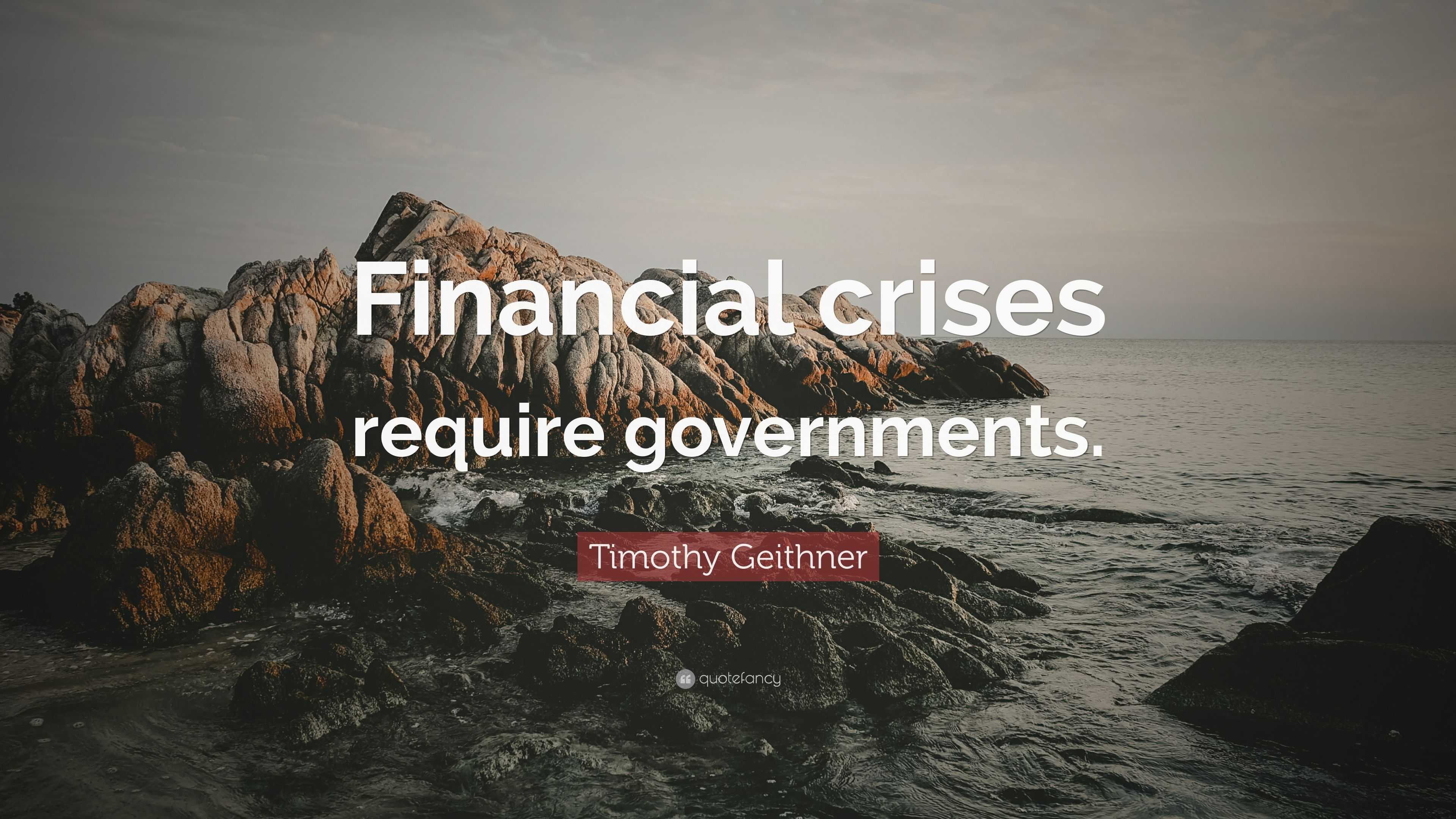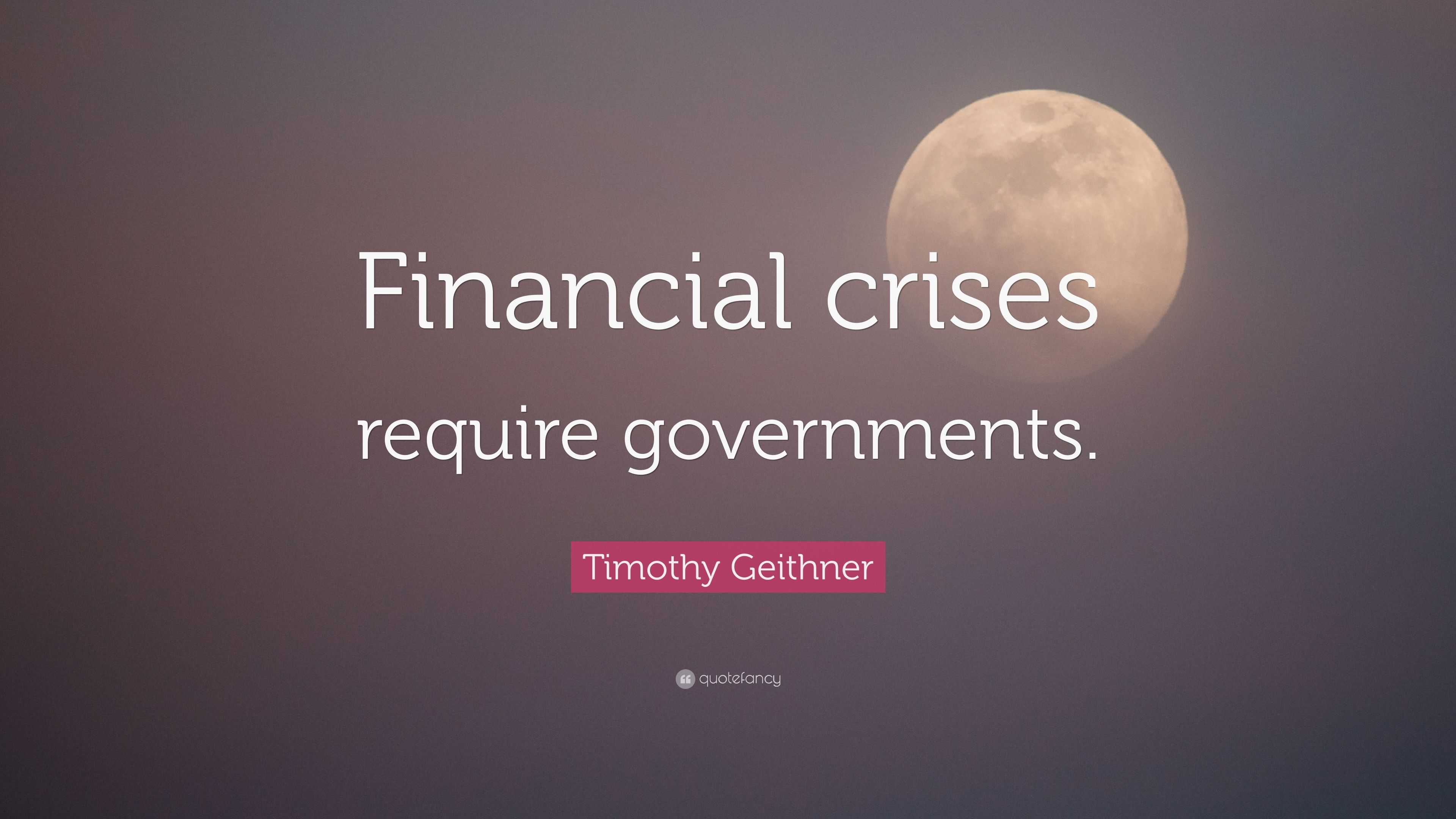World Updates | Update information about politics and social around the world
The Catastrophic Börskrasch Of 2025: Lessons From The Past To Navigate The Future Of Financial Crises
What is The Catastrophic Börskrasch Of 2025: Lessons From The Past To Navigate The Future Of Financial Crises?
Editor's Notes: "The Catastrophic Börskrasch Of 2025: Lessons From The Past To Navigate The Future Of Financial Crises" have published today July 31, 2024, gives us insight into the lessons we can learn from past financial crises to help us prepare for and navigate the future of financial crises.
The Catastrophic Börskrasch Of 2025: Lessons From The Past To Navigate The Future Of Financial Crises is based on an analysis of previous financial crises, the authors identify a number of key lessons with key takeaways that can help us reduce the likelihood of future crises as well as the severity of their impact.

Timothy Geithner Quote: “Financial crises require governments.” - Source quotefancy.com
Key Differences Or Key Takeways
Here is a table with information.
| The Catastrophic Börskrasch Of 2025: Lessons From The Past To Navigate The Future Of Financial Crises | |
|---|---|
| Publish Date | July 31, 2024 |
| Authors | N/A |
| Number of Pages | N/A |
| Main Themes | Financial crises, The Catastrophic Börskrasch Of 2025: Lessons From The Past To Navigate The Future Of Financial Crises, Economic, History, Financial, Present, Past, Future |
Main Article Topic
The Catastrophic Börskrasch Of 2025: Lessons From The Past To Navigate The Future Of Financial Crises is divided into three main parts:
- The first part provides a brief overview of the history of financial crises, with a focus on the most recent crisis, the 2008 financial crisis
- The second part identifies a number of key lessons that can be learned from past financial crises
- The third part discusses the implications of these lessons for the future of financial crises
The Catastrophic Börskrasch Of 2025: Lessons From The Past To Navigate The Future Of Financial Crises is a valuable resource for anyone who wants to understand the history of financial crises and the lessons that can be learned from them. The book is also a valuable resource for anyone who is interested in the future of financial crises and the steps that can be taken to reduce the likelihood of future crises and their severity.
FAQ: The Catastrophic Börskrasch Of 2025
In the aftermath of the catastrophic Börskrasch of 2025, it is imperative to reflect on the lessons learned and prepare for future financial crises. This comprehensive compendium of frequently asked questions (FAQs) aims to provide essential information, dispel misconceptions, and guide individuals in navigating the intricacies of financial crises.

Timothy Geithner Quote: “Financial crises require governments.” - Source quotefancy.com
Question 1: What were the primary factors that led to the Börskrasch of 2025?
The Börskrasch of 2025 was a culmination of several interconnected factors, including: excessive risk-taking by financial institutions, inadequate regulation of the derivatives market, a surge in corporate leverage, and complacency among investors.
Question 2: How can we prevent a similar crisis from occurring in the future?
Preventing future financial crises requires a multifaceted approach involving enhanced risk management practices, stricter regulation of the financial industry, increased transparency and disclosure, and improved financial literacy among investors.
Question 3: What are the key lessons learned from the Börskrasch of 2025?
The Börskrasch of 2025 underscores the importance of prudent risk-taking, the need for robust regulatory frameworks, the dangers of excessive leverage, and the responsibility of investors to educate themselves and make informed decisions.
Question 4: What are the potential long-term consequences of the Börskrasch of 2025?
The Börskrasch of 2025 has far-reaching implications for the global economy, including reduced economic growth, increased unemployment, and a loss of confidence in financial institutions and markets.
Question 5: How should investors respond to the Börskrasch of 2025?
In the wake of the Börskrasch of 2025, investors are advised to maintain a long-term perspective, diversify their portfolios, and seek professional advice if necessary. Panic selling and emotional decision-making should be avoided.
Question 6: What is the role of government and central banks in preventing and responding to financial crises?
Governments and central banks have a critical role in preventing and mitigating financial crises through effective regulation, prudent monetary policy, and timely intervention when necessary.
By addressing these critical questions, this FAQ provides a comprehensive understanding of the Börskrasch of 2025 and its implications for the future of financial stability. By applying the lessons learned from this unprecedented event, we can better prepare for and mitigate the devastating consequences of future crises.
Next: Explore the latest insights and analysis on the Börskrasch of 2025 and its impact on global markets and economies.
Tips
The Catastrophic Börskrasch Of 2025: Lessons From The Past To Navigate The Future Of Financial Crises The Catastrophic Börskrasch Of 2025: Lessons From The Past To Navigate The Future Of Financial Crises explores historical financial crises and extracts valuable lessons. By understanding the factors that led to previous crises, we can develop strategies to navigate future challenges.
Tip 1: Understand the risks of leverage.
Leverage, or the use of borrowed funds, can amplify returns. However, it also magnifies risks. When markets decline, leveraged investments can quickly spiral into losses.
Tip 2: Diversify investments.
Don't put all your eggs in one basket. Diversifying investments across different asset classes, such as stocks, bonds, and real estate, helps reduce risk. Diversification does not guarantee against loss, but it can help mitigate the impact.
Tip 3: Build an emergency fund.
An emergency fund provides a financial cushion for unexpected events. Aim to save enough to cover several months of expenses. In times of crisis, this fund can prevent the need for risky borrowing.
Tip 4: Stay informed.
Monitoring economic indicators and financial news helps you understand potential risks. By staying informed, you can make better investment decisions and respond promptly to changing market conditions.
Tip 5: Plan for the long-term.
Financial crises are temporary. Don't panic and sell investments at a loss. Focus on the long-term and ride out short-term volatility. Patience and discipline are crucial in navigating crises.
While financial crises can be challenging, understanding the lessons of history provides valuable guidance. By implementing these tips, individuals and organizations can mitigate risks, prepare for the unexpected, and navigate the future of financial crises with greater confidence.
The Catastrophic Börskrasch Of 2025: Lessons From The Past To Navigate The Future Of Financial Crises
The Börskrasch of 2025 stands as a catastrophic event, leaving indecipherable imprints on the financial landscape. This article delves into six key aspects, drawing lessons from the past to illuminate our path through future financial crises.
- Reckless Speculation: Unbridled risk-taking fueled an unsustainable bubble.
- Regulatory Failures: Lax oversight and inadequate risk management sowed the seeds of disaster.
- Systemic Interconnections: Complex financial instruments amplified the crisis's impact.
- Behavioral Biases: Cognitive biases and herd mentality exacerbated market volatility.
- Lack of Transparency: Obscured information undermined trust and sowed panic.
- Global Interdependence: The interconnected global economy transmitted the crisis worldwide.
These aspects offer crucial insights into preventing and mitigating future crises. The Börskrasch teaches us the perils of recklessness, the necessity of robust regulation, and the importance of transparency. It highlights the dangers of systemic risk and the role of behavioral biases in market dynamics. Most importantly, it underscores the interconnectedness of the global financial system and the need for international cooperation in crisis management.

Predicting the Future of Supply Chains: Learning from the Past to - Source www.isye.gatech.edu
The Catastrophic Börskrasch Of 2025: Lessons From The Past To Navigate The Future Of Financial Crises
The Catastrophic Börskrasch of 2025, a hypothetical financial crisis, serves as a stark reminder of the potential consequences of unchecked speculation and systemic vulnerabilities. By examining historical precedents and analyzing the factors that contributed to past crises, we can glean invaluable lessons to better prepare for and navigate future financial turmoil.

African firms spend millions on digital tech to navigate the future - Source www.financialfortunemedia.com
The Börskrasch shares striking similarities with the Wall Street Crash of 1929. Both crises were preceded by a period of rapid economic growth, fueled by excessive leverage and a speculative frenzy. The widespread belief in "easy money" and the illusion of perpetual prosperity created a false sense of security, leading investors to take on excessive risk.
Another crucial lesson from the Börskrasch is the importance of robust regulatory frameworks. The lack of effective oversight and enforcement in the lead-up to the crisis allowed systemic risks to accumulate. Weaknesses in the financial system, such as interconnectedness and opacity, amplified the impact of the initial shock and exacerbated the ensuing panic.
The Catastrophic Börskrasch of 2025 underscores the need for constant vigilance and proactive risk management. By understanding the historical patterns and warning signs of financial crises, policymakers, regulators, and financial institutions can implement measures to mitigate systemic risks and enhance financial stability.
The lessons learned from the Börskrasch provide a valuable roadmap for navigating future financial crises. By fostering a culture of prudent risk-taking, strengthening regulatory frameworks, and promoting transparency, we can increase our resilience to financial shocks and safeguard the stability of the global financial system.
Conclusion
The Catastrophic Börskrasch of 2025 serves as a stark warning of the devastating consequences that can arise from unchecked speculation and systemic vulnerabilities. By studying the lessons from past crises, we can better prepare for and mitigate future financial turmoil.
The key takeaways from the Börskrasch include the importance of prudent risk-taking, robust regulatory frameworks, and proactive risk management. By implementing these measures, policymakers, regulators, and financial institutions can enhance financial stability and protect the global economy from the devastating effects of financial crises.